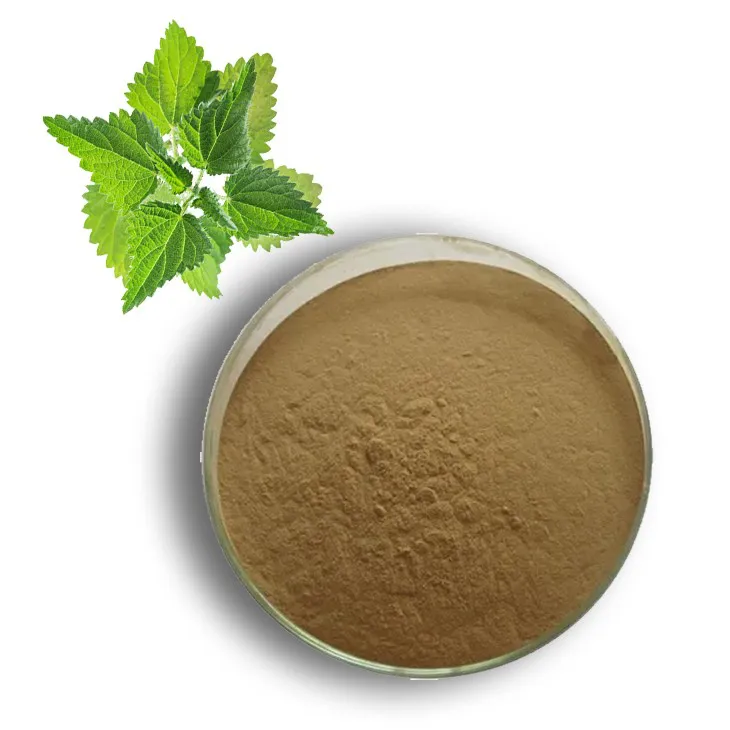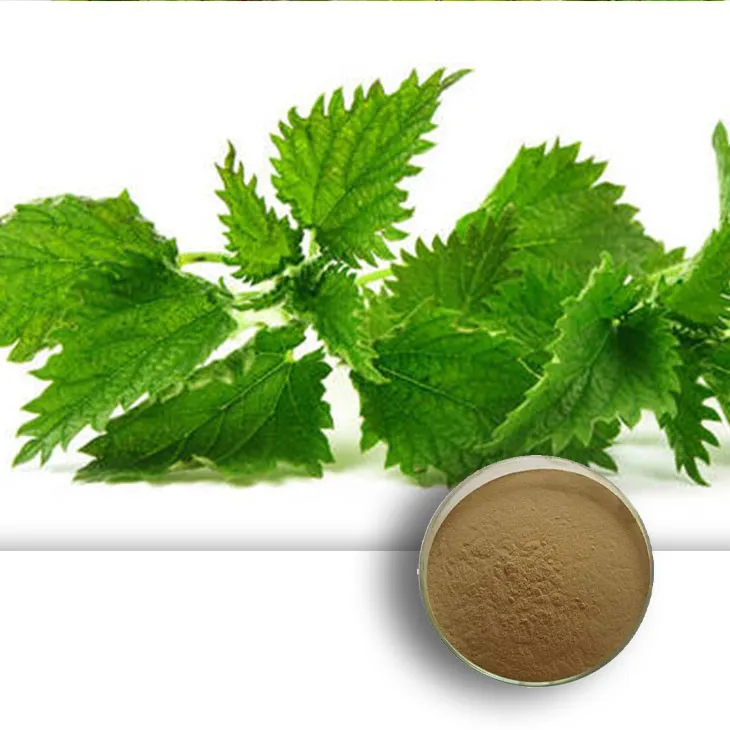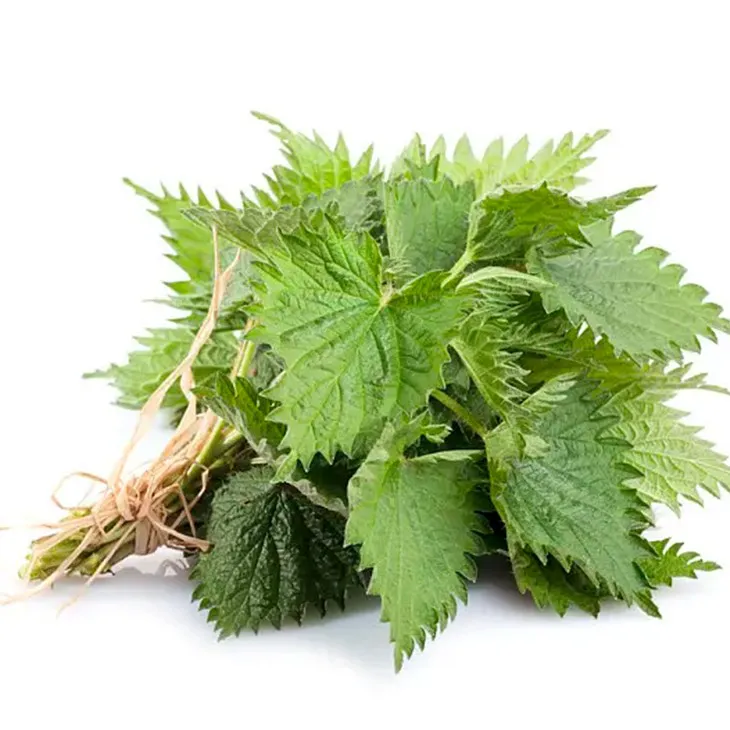- 0086-571-85302990
- sales@greenskybio.com
Standard - process nettle leaf extract.
2024-12-02

1. Introduction to Nettle leaf extract
The standard - processed Nettle leaf extract is a remarkable product that has been drawing more and more attention in recent times. Nettle, a plant often recognized for its stinging hairs, is also a rich source of numerous beneficial properties, which are harnessed in the form of its extract. Nettle has a long history of use in traditional medicine across different cultures. It grows in many regions around the world and is relatively easy to cultivate, making it a sustainable source for extract production.

2. Medicinal Properties of Nettle leaf extract
2.1 Diuretic Properties
One of the significant aspects of the nettle leaf extract from a medicinal perspective is its diuretic properties. Diuretics play a crucial role in maintaining the body's fluid balance. By promoting the excretion of water and salts from the body, the extract can help in reducing water retention. This can be particularly beneficial for individuals suffering from conditions such as edema, where there is an abnormal accumulation of fluid in the body tissues. Studies have shown that the bioactive compounds present in the nettle leaf extract interact with the body's renal system to enhance the filtration and excretion processes.
2.2 Urinary Tract Health
The extract also has a positive impact on urinary tract health. It may help in preventing urinary tract infections (UTIs). The anti - microbial properties of the nettle leaf extract are key in this regard. It can inhibit the growth of certain bacteria that are commonly associated with UTIs, such as Escherichia coli. Additionally, it can help in maintaining the integrity of the urinary tract lining, reducing the risk of bacteria adhering to the walls and causing an infection. This is especially important as UTIs are a common health problem, especially among women.

3. Dietary Applications of Nettle Leaf Extract
Nettle leaf extract can be incorporated into a wide variety of dietary applications. It serves as a natural source of nutrition, adding valuable components to different food and beverage products.
3.1 Herbal Teas
One of the most popular applications is in herbal teas. Nettle leaf extract imparts a distinct earthy flavor to the tea, which is not only pleasant but also comes with its health - promoting benefits. When combined with other herbs such as peppermint or chamomile, it can create a unique and flavorful blend. Drinking nettle leaf tea can be a refreshing and healthy alternative to regular tea or coffee. It can also be used as a natural remedy for minor ailments such as indigestion or as a general tonic for overall well - being.
3.2 Other Food and Beverage Products
In addition to herbal teas, nettle leaf extract can be added to other beverages like smoothies or juices. In the food industry, it can be used in the production of certain types of bread, soups, or even desserts. For example, in a spinach and nettle leaf soup, the extract can enhance the nutritional value and add a unique flavor. It can also be used in energy bars or granola, providing an extra boost of nutrition along with its characteristic taste.

4. Use in Natural Product Manufacturing
4.1 Hair Care Products
Standard - processed nettle leaf extract is widely used in the manufacturing of natural hair care products such as shampoos and conditioners. It has excellent cleansing and conditioning properties that are beneficial for the hair and scalp. The extract can nourish the hair follicles, promoting healthy hair growth. It can also help in reducing dandruff and scalp irritation. For individuals with dry or damaged hair, products containing nettle leaf extract can help in restoring the hair's natural shine and softness.
4.2 Skin Care Products
In the realm of skin care, nettle leaf extract is used in soaps and lotions. It can cleanse the skin effectively without stripping away its natural oils. This is important as the skin's natural oils play a vital role in maintaining its moisture balance and protecting it from external factors. The extract also has anti - inflammatory properties, which can be beneficial for individuals with skin conditions such as eczema or acne. It can soothe irritated skin and reduce redness, making it a valuable ingredient in natural skin care products.
5. The Production Process of Standard - Processed Nettle Leaf Extract
The production of standard - processed nettle leaf extract involves several steps. Firstly, the nettle leaves are carefully harvested. It is important to pick the leaves at the right time to ensure maximum potency of the bioactive compounds. The leaves are then washed thoroughly to remove any dirt or impurities.
- After washing, the leaves are dried. This can be done either naturally in the sun or using specialized drying equipment. Drying helps in preserving the leaves and preparing them for further processing.
- Once dried, the leaves are ground into a fine powder. This powder can then be used for extraction. There are different extraction methods, such as solvent extraction or steam distillation.
- In solvent extraction, a suitable solvent like ethanol or water is used to extract the bioactive compounds from the powdered nettle leaves. The solvent is then removed through evaporation, leaving behind the concentrated extract.
- Steam distillation, on the other hand, is used mainly for extracting the essential oils from the nettle leaves. The steam is passed through the leaves, and the volatile compounds are carried along with the steam. These are then condensed and separated from the water, resulting in the essential oil or a more volatile - rich extract.
- After extraction, the nettle leaf extract may undergo further purification and standardization processes to ensure its quality and consistency. This may involve filtration to remove any remaining solids or impurities and testing for the presence and concentration of key bioactive compounds.
6. Quality Control and Standardization
Quality control is of utmost importance in the production of standard - processed nettle leaf extract. Standardization ensures that each batch of the extract has consistent levels of the bioactive compounds that are responsible for its beneficial properties.
- One aspect of quality control is the sourcing of the nettle leaves. The plants should be grown in a clean and unpolluted environment, free from pesticides and other contaminants. This can be ensured through proper agricultural practices and regular testing of the soil and plants.
- During the production process, strict monitoring of the extraction and purification steps is necessary. Parameters such as temperature, pressure, and extraction time need to be carefully controlled to ensure the optimal extraction of bioactive compounds and to prevent the degradation of these compounds.
- Finally, the finished product should be tested for its potency, purity, and safety. This may involve laboratory analysis for the presence of specific bioactive compounds, as well as microbiological testing to ensure that the extract is free from harmful bacteria, fungi, or other microorganisms.
7. Future Prospects of Nettle Leaf Extract
The future looks promising for standard - processed nettle leaf extract. With the increasing demand for natural and sustainable products in the health, food, and beauty industries, nettle leaf extract is well - positioned to play an even greater role.
- Research is ongoing to discover new bioactive compounds in nettle leaves and to further understand their mechanisms of action. This could lead to the development of new products or the improvement of existing ones.
- There is also potential for expanding the applications of nettle leaf extract in the pharmaceutical industry. As more evidence accumulates regarding its medicinal properties, it may be used in the development of new drugs or as a complementary therapy for certain diseases.
- In the food and beverage industry, new and innovative products incorporating nettle leaf extract are likely to emerge. Consumers are becoming more health - conscious and are actively seeking out products with natural ingredients and added health benefits.
- Finally, in the beauty industry, the use of nettle leaf extract in hair and skin care products is expected to grow. With the trend towards natural and organic beauty products, nettle leaf extract offers a viable and effective alternative to synthetic ingredients.
FAQ:
What are the main bioactive compounds in standard - processed nettle leaf extract?
The nettle leaf extract is rich in various bioactive compounds. Some of the main ones include flavonoids, phenolic acids, and polysaccharides. Flavonoids are known for their antioxidant properties, phenolic acids contribute to its anti - microbial effects, and polysaccharides may play a role in its diuretic and other health - promoting functions.
How does the standard - processed nettle leaf extract benefit urinary tract health?
The extract may benefit urinary tract health in multiple ways. Its diuretic properties help in maintaining proper fluid balance in the body. Also, its anti - microbial properties can prevent the growth of harmful bacteria in the urinary tract, reducing the risk of urinary tract infections.
Can standard - processed nettle leaf extract be used in all types of food and beverage products?
While it can be incorporated into many food and beverage products, it may not be suitable for all. In herbal teas, it works well, adding flavor and health benefits. However, in some highly processed or acidic products, its properties may be affected. Also, when using it in food and beverage products, proper dosage and safety regulations need to be considered.
What makes standard - processed nettle leaf extract good for hair and scalp?
The extract contains nutrients that can nourish the hair and scalp. It has conditioning properties that help in keeping the hair healthy and promoting growth. It also helps in cleansing the scalp without removing the natural oils, which is essential for maintaining a healthy scalp environment.
How is the standard - processed nettle leaf extract manufactured?
The manufacturing process typically involves harvesting the nettle leaves, drying them, and then using various extraction methods such as solvent extraction or supercritical fluid extraction. After extraction, the extract is purified and standardized to ensure consistent quality and potency.
Related literature
- The Bioactive Compounds and Health Benefits of Nettle Leaf Extract"
- "Nettle Leaf Extract in Dietary and Cosmetic Applications"
- "Manufacturing and Standardization of Nettle Leaf Extract"
- ▶ Hesperidin
- ▶ Citrus Bioflavonoids
- ▶ Plant Extract
- ▶ lycopene
- ▶ Diosmin
- ▶ Grape seed extract
- ▶ Sea buckthorn Juice Powder
- ▶ Fruit Juice Powder
- ▶ Hops Extract
- ▶ Artichoke Extract
- ▶ Mushroom extract
- ▶ Astaxanthin
- ▶ Green Tea Extract
- ▶ Curcumin
- ▶ Horse Chestnut Extract
- ▶ Other Product
- ▶ Boswellia Serrata Extract
- ▶ Resveratrol
- ▶ Marigold Extract
- ▶ Grape Leaf Extract
- ▶ New Product
- ▶ Aminolevulinic acid
- ▶ Cranberry Extract
- ▶ Red Yeast Rice
- ▶ Red Wine Extract
-
Tinospora cordifolia extract
2024-12-02
-
Citrus Aurantium Extract
2024-12-02
-
Sugarcane Extract
2024-12-02
-
Rosemary extract
2024-12-02
-
Withania Somnifera Extract
2024-12-02
-
Grapefruit Seed Extract Powder
2024-12-02
-
Bamboo Leaf extract
2024-12-02
-
Marigold Extract
2024-12-02
-
Stevia Extract
2024-12-02
-
Alisma Extract
2024-12-02





















